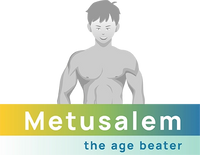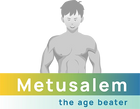The Science Behind Aging: Understanding the Process

In the realm of biology and medicine, the process of aging is a complex and fascinating phenomenon that affects all living organisms, including humans. While aging is a natural and inevitable part of life, understanding the science behind this intricate process can provide valuable insights into how we can potentially slow down its effects and age gracefully.
What is Aging?
Aging can be defined as a gradual and progressive deterioration of physiological functions over time, leading to a decline in overall health and increased susceptibility to disease. This process is influenced by a combination of genetic, environmental, and lifestyle factors.
The Role of Telomeres
At the cellular level, one key player in the aging process is the telomere. Telomeres are protective caps located at the end of chromosomes that shorten with each cell division. As telomeres shorten, cells reach a point where they can no longer divide, leading to cellular senescence and ultimately contributing to the aging of tissues and organs.
Oxidative Stress and Aging
Another important factor in aging is oxidative stress. This results from an imbalance between the production of harmful free radicals and the body's ability to neutralize them with antioxidants. Over time, oxidative stress can damage cells, proteins, and DNA, accelerating the aging process.
The Role of Inflammation
Inflammation is a natural response of the immune system to injury or infection. However, chronic inflammation is associated with aging-related diseases such as arthritis, heart disease, and neurodegenerative disorders. Managing inflammation is crucial for healthy aging.
Cellular Senescence
Cellular senescence is a state in which cells cease to divide but remain metabolically active. While senescent cells play a role in wound healing and tumour suppression, their accumulation in tissues can contribute to age-related conditions.
Genetic Influences on Aging
Genes also play a significant role in determining how we age. Some individuals may have genetic variations that predispose them to age-related diseases, while others may possess genetic factors that promote longevity.
Lifestyle Factors and Aging
Our lifestyle choices, including diet, exercise, stress management, and sleep, can profoundly impact the aging process. A healthy lifestyle that includes regular physical activity and a balanced diet rich in antioxidants can help maintain cellular health and slow down the effects of aging.
The Importance of Hormones
Hormones, such as human growth hormone and sex hormones, play a crucial role in regulating various physiological processes related to aging. Hormone levels naturally decline with age, leading to changes in body composition, metabolism, and overall functioning.
The Gut Microbiome and Aging
Recent research has highlighted the importance of the gut microbiome in influencing the aging process. The trillions of bacteria residing in our digestive system play a vital role in immune function, nutrient absorption, and even cognitive health, all of which impact how we age.
Anti-Aging Strategies
While aging is inevitable, there are various strategies that can help slow down its effects and promote healthy aging. These include maintaining a healthy diet, staying physically active, managing stress, getting adequate sleep, and incorporating antioxidant-rich foods and supplements into your routine.
Embracing Aging Gracefully
As we gain a deeper understanding of the science behind aging, we can make informed choices that support our health and well-being as we grow older. By nurturing our bodies, minds, and spirits, we can embrace the aging process with grace and vitality.
In Conclusion, Knowledge is Key
By delving into the complexities of aging and deciphering the scientific mechanisms at play, we empower ourselves to age with wisdom and vitality. Through a holistic approach that considers genetics, lifestyle, and environmental factors, we can navigate the process of aging with grace and resilience.

